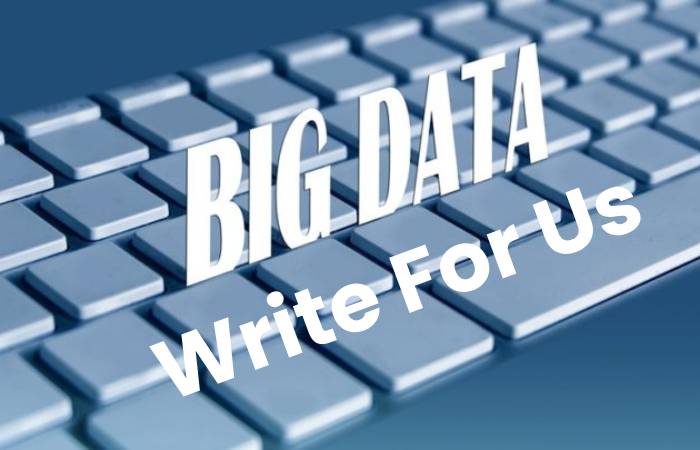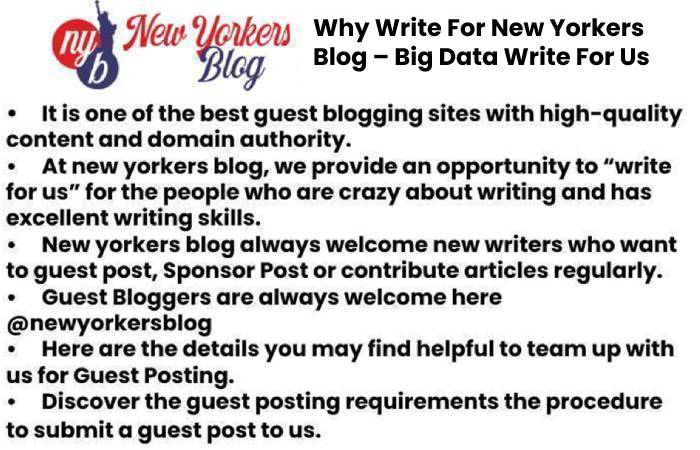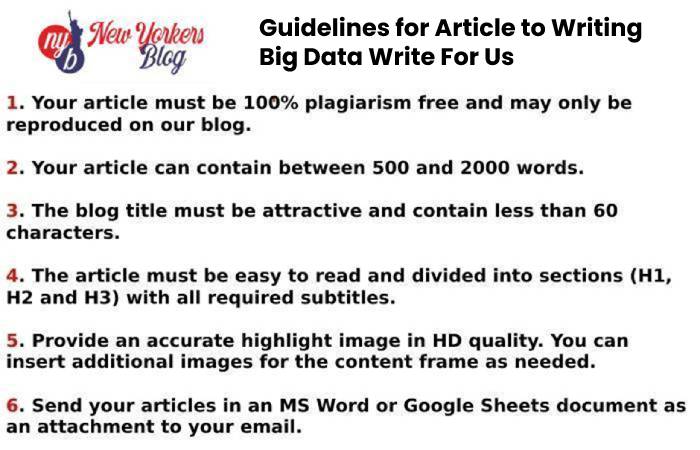 Big Data Write For Us
Big Data Write For Us
Big Data is a term that describes the large amounts of difficult-to-manage data, both structured and unstructured, that inundate organizations every day. And Big data can be analyzed for insights that improve decisions and inspire confidence to take strategic business moves. But it’s not just the type or amount of data that matters, but what companies do with the data.
How Big Data Works
Before organizations can leverage big data, they must consider how it flows across various locations, sources, systems, owners, and users. There are five critical steps to adopting this “Fabric of Big Data” that spans traditional structured data alongside unstructured and semi-structured data:
- Establish a big data strategy.
- Identify big data sources.
- Retrieve, manage and store data.
- Analyze the data.
- Make intelligent decisions based on data.
1) Establish a big data strategy
At a high level, a big data strategy is a plan designed to help you oversee and improve how you collect, store, manage, share, and use data inside and outside your organization. A big data strategy creates the conditions for business success amidst huge amounts of data. When developing a strategy, it is vital to consider existing and future business and technology goals and initiatives. It requires treating big data like any other valuable business asset and not just a by-product of applications.
2) Identify big data sources
- Data transmission occurs over the Internet of Things (IoT) and other connected devices, flowing into IT systems from wearable devices, smart cars, medical devices, industrial equipment and more. You can analyze these large amounts of data as it comes in and decides which data to keep or not and which to explore further.
- Social media data comes from interactions on Facebook, YouTube, Instagram, etc. It includes large amounts of big data in the form of images, videos, voice, text and sound, which is useful for marketing, sales and support functions. It data is often unstructured or semi-structured, presenting a unique challenge for exploitation and analysis.
- Publicly available data comes from vast amounts of open data sources such as the US government’s data.gov, the CIA’s World Factbook, or the European Union’s Open Data Portal.
- Other big data can come from data lakes, cloud data sources, providers, and customers.
3) Retrieve, manage and store big data
Modern computer systems offer the speed, power, and flexibility to quickly access vast amounts and types of massive data. Some big data can be stored on-premises in a traditional data warehouse, but there are also inexpensive and flexible options for storing and managing big data via cloud solutions, data lakes, data pipelines, and Hadoop. In addition to trusted access, organizations also need methods to integrate data, create data pipelines, ensure data quality, provide data management and storage, and prepare data for analysis.
4) Analyze the data
Big data is increasingly driving today’s advanced analytics efforts such as artificial intelligence (AI) and machine learning. With powerful technologies such as grid computing or in-memory analysis, companies can use all of their big data for analysis. Another approach is to predetermine what data is relevant before analyzing it. Anyway, big data analytics is how companies derive value and insights from data.
5) Make intelligent decisions based on data
Trusted, well-managed data leads to trusted analysis and trusted decisions. To remain competitive, companies need to harness the full value of big data and be data-driven, making decisions based on big data, not instincts. The advantages of data control are obvious. Data-driven organizations are more efficient, operationally predictable and profitable.
How to Submit Your Articles
For Submitting Your Articles, you can email us at contact@newyorkersblog.com
Why Write For New Yorkers Blog – Big Data Write For Us
 Search Related Terms to Big Data Write For Us
Search Related Terms to Big Data Write For Us
Big Data (band)
data-processing application software
statistical power
false discovery rate
capturing data
data storage
data analysis
sharing
transfer
visualization
predictive analytics
user behavior analytics
governments
Internet searches
Fintech
radio-frequency identification
McKinsey & Company
Relational database management systems
Search Terms for Big Data Write For Us
Big Data Write For Us
looking for guest posts
guest posting guidelines
become a guest blogger
guest post
becomes an author
suggest a post
contributor guidelines
guest posts wanted
submit an article
writers wanted
guest posts wanted
submit the post
contributing writer

